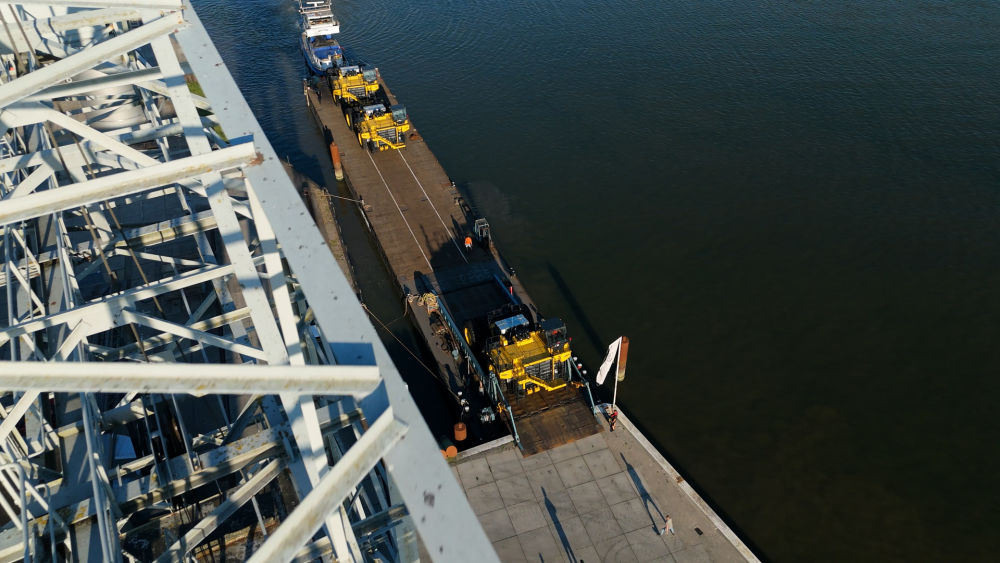
The solution for the most efficient and sustainable routes often lies in multimodal transport. This logistical approach is becoming increasingly important in the dynamic world of special and heavy transport. But what exactly does multimodal transport entail? And why might it be relevant for your transportation needs? In this article, we explore the advantages of multimodal transport.
Simply put: multimodal transport is the combination of two or more different modes of transport to move goods to their destination. Think of trucks, trains, ships, and airplanes. For example, a container might first cross the ocean by ship, then travel through Europe by train, and finally cover the last few kilometers by truck. One contract, multiple transport modes. The same freight carrier arranges all modes of transport throughout the entire journey.
The terms multimodal and intermodal transport are often used interchangeably. Intermodal transport is actually a form of multimodal transport. There is a subtle but important difference:
Multimodal transport for special and heavy cargo is versatile and can be used for various types of goods across different markets. Examples include:
Why choose multimodal transport? The benefits are significant and carry weight in today’s logistical considerations:
By covering longer distances by ship or train, total transport costs can be significantly reduced. Transport by ship or train is often cheaper than road transport, especially for large volumes and long distances.
Rail and inland waterway transport have lower CO₂ emissions per ton-kilometer compared to road transport. This makes multimodal transport a more sustainable choice and contributes to your CSR goals.
Multimodal transport can lead to more efficient use of transport modes and infrastructure. It also offers more flexibility during disruptions; if the road is blocked, the cargo might be rerouted via rail or water. Additionally, it helps reduce road congestion.
Despite the many advantages, there are also challenges. Coordination between different carriers and transport modes can be complex. Moreover, infrastructure is not equally developed everywhere, which can limit flexibility. And like any transport, unforeseen circumstances such as extreme weather or strikes can affect planning.
This is precisely why choosing an experienced and knowledgeable partner is essential. Van der Vlist has years of expertise in planning and executing complex multimodal transports for exceptional cargo. We take care of the coordination from start to finish. Our extensive network and deep infrastructure knowledge ensure we choose the most efficient and reliable routes. Moreover, we are flexible and proactively anticipate potential disruptions, ensuring your cargo always arrives safely and on time.
We’re glad to help you
Based on your location and your market / this service we advice you to contact:
Van der Vlist Logistics B.V.

